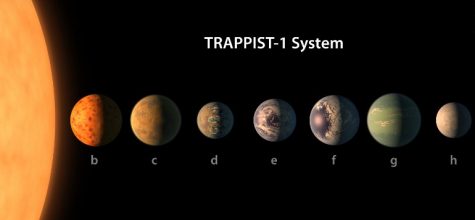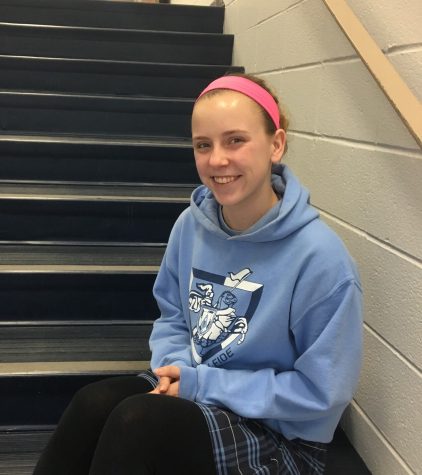The New Seven Wonders
Astronomers from NASA have announced that seven new planets have been discovered. These planets are similar to the size of Earth and orbit a star 40 light years away. With this discovery, it is possible that Earth may not be the only planet to sustain life.
This discovery is so rare, thus science nerds around the world were ecstatic. The planets’ conditions may allow water to exist. Water means sustenance, and sustenance means life. Scientists are confident about three planets called TRAPPIST-1e, f and g, that lie in a habitable zone. There is evidence that oceans exist on their surfaces.
The planets are called exoplanets because they orbit a star that is not our sun. The star is known as TRAPPIST-1. Researchers know little about the planets but are currently looking for what types of gases fill the atmosphere.
Mr. Bob Hennekes, a physics and engineering teacher here at St. Dominic, is thrilled about the discovery.
“I think this means there is a possibility of gaining great knowledge from a place similar to our own, so the knowledge we could gain is unbelievable. I am so excited, I can’t wait to find out who is out there and what the answers are going to be,” said Mr. Hennekes.
Although the planets are similar to Earth, they are in a galaxy different to our own. They are much closer together; all seven planets lie within a distance that is shorter than the distance between our sun and Mercury. This makes it easier for scientists to study the planets.
 The planets are also tidally locked, meaning that they don’t rotate around an axis like Earth. One side is perpetually light while the other is constantly dark. In addition, the planets have shorter orbital periods. Our Earth orbits the sun in about 365 days, while the closest exoplanet orbits TRAPPIST-1 in one and a half days and the farthest exoplanet orbits in about twenty days.
The planets are also tidally locked, meaning that they don’t rotate around an axis like Earth. One side is perpetually light while the other is constantly dark. In addition, the planets have shorter orbital periods. Our Earth orbits the sun in about 365 days, while the closest exoplanet orbits TRAPPIST-1 in one and a half days and the farthest exoplanet orbits in about twenty days.
This discovery is monumental to the scientific community and possibly paves the way for a tremendous amount of new knowledge about the universe beyond our own galaxy. Several new telescopes are being placed around the world in hopes of advancing this research and answering one of science’s biggest questions: “Are we really alone?”

Lauren Jennings is a senior who is involved in FBLA, Ambassadors Club, Pro-Life Club, CRU, the senior advisory program and NHS. Lauren loves watching...


